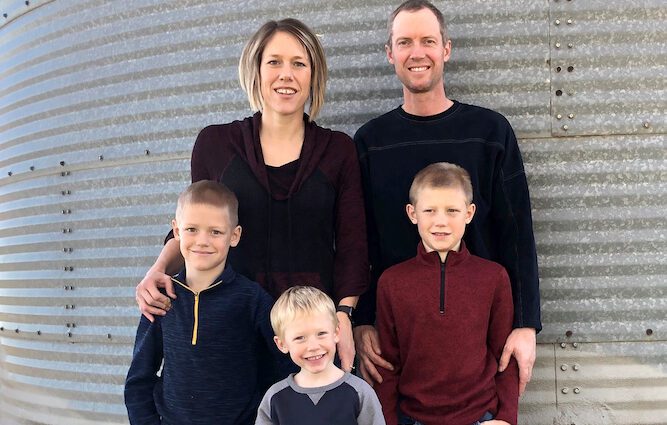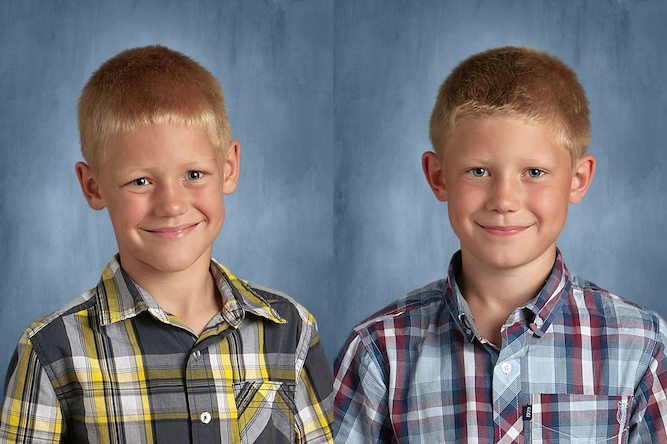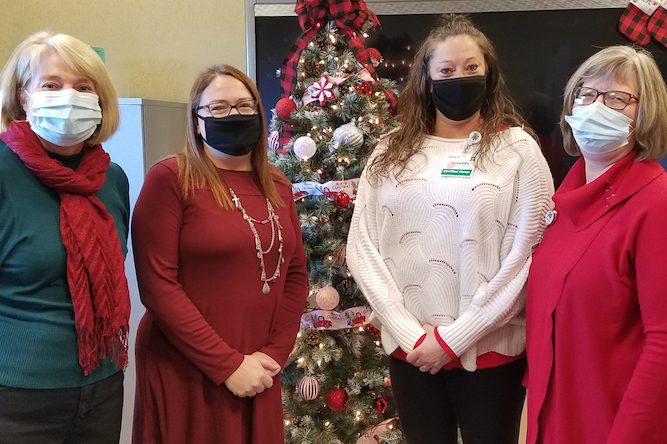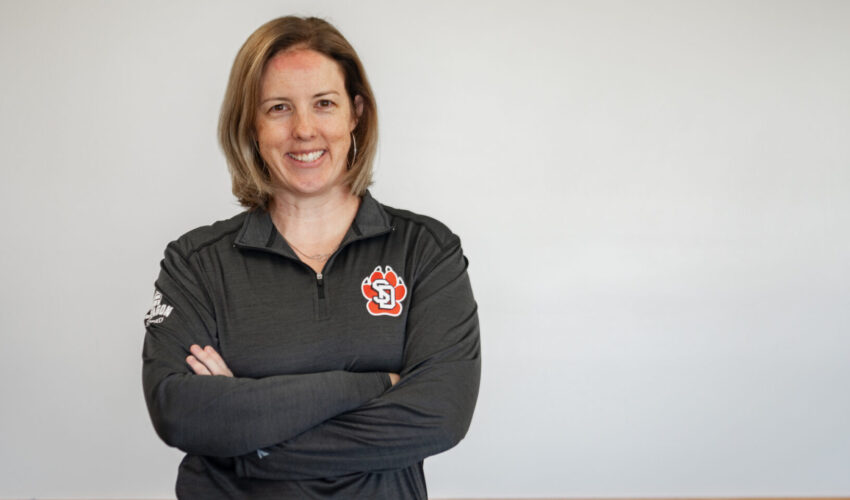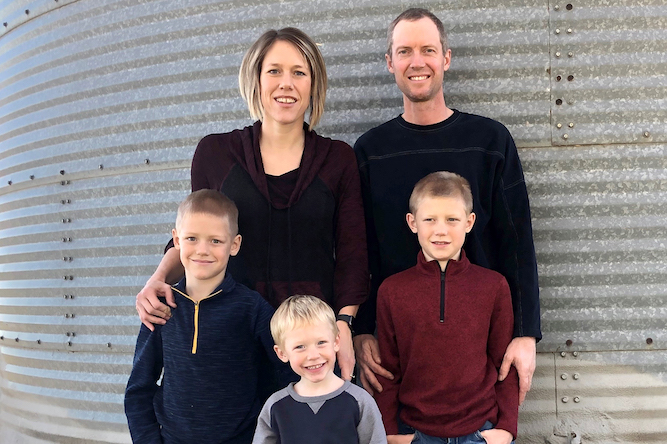SDN helps fund Avera eCARE school nurses caring for growing diabetes cases
March 10, 2021
This paid piece is sponsored by SDN Communications.
Dana Culver makes medical recommendations for a living in her professional role as a Brookings pharmacist, but in her role as mother to two young boys diagnosed with type 1 diabetes, she lost her confidence.
“As a pharmacist, I know what needs to happen with my boys, but on a personal level, it’s rough,” Culver said. “With my own kids, I didn’t trust myself.”
She said Avera eCARE School Health nurses came to her rescue.
Her boys, second-grader Mason (left) and third-grader Lincoln (right), attend elementary in tiny Toronto, which is part of the Deubrook School District.
“It’s a small school, and that can be a good thing because teachers and staff know my boys, but on the other hand, I had to wonder if they would have the resources to deal with my boys’ diagnosis.”
Fortunately for the Culver family, the Deubrook schools have a partnership with Avera eCARE School Health. Its nurses connect via video for help on everything from carbohydrate counting of school lunches to coaching her boys on how to give themselves insulin. The nurses also consult with Culver and her husband, Ben.
“They’ve been great,” she said. “The nurses call or text with questions about the boys, and they listen to me.”
The Culver boys quickly formed bonds with the nurses they see over the internet video link up to three times a day.
At lunch, the boys get released from class a few minutes early to get their food plated. Then, they do a video consult with an eCARE nurse to count the carbohydrates, so they can inject insulin before they eat. If they don’t eat everything on the plate — they are young boys after all — they do another video link to subtract that food and rebalance to keep their blood sugar in check.
“Those nurses are so good,” Culver said.
Third-grader Lincoln said: “They are really nice, and they help teach me about how to take care of my diabetes. They help with corrections when my blood sugar is high.”
Lincoln’s mom added that “both boys feel connected to the nurses, and Mason often retells the jokes they tell him.”
Mason, the Culvers’ middle son, was diagnosed at age 4. He doesn’t even remember not being diabetic. On the other hand, their oldest son, Lincoln, just received his diagnosis in January. In both cases, Culver’s medical background picked up the indicators.
“With Mason, I noticed he drank a lot of water and went to the bathroom more than most kids his age, and I mentioned it to my colleagues at the pharmacy. One of them said to take home a meter to check his blood sugar level. I did, and it registered so high, it didn’t even give a number,” Culver said.
With Lincoln, Culver noted his appearance when she was coaching his third-grade basketball team.
“His coloring did not look good compared to the other boys, and I told my husband I thought Lincoln had lost weight,” she said.
The next morning at breakfast, husband Ben said “we’re going to check everyone’s glucose today.”
A normal level should be under 100; Lincoln’s was 300. They booked him immediately for testing and a diagnosis in Sioux Falls.
What makes it more shocking: There’s no family history of diabetes. The Culvers’ youngest, Boyd, so far shows no signs of diabetes.
“So far he’s OK, but we’re nervous,” she said.
eCARE supports ever-growing need
Avera eCARE School Health director Sheila Freed oversees the three full-time nurses supporting 26 schools – 12 with no on-site nurses and 14 schools where they supplement school nurses spread thin. The total student population in the program includes 6,368 students, and by mid-February of this school year, the staff had done 1,801 virtual health appointments.
The program also supports additional schools in Iowa and North Dakota. In all cases, Freed said the cooperation from school staff makes the program successful.
Freed said 60 percent of the eCARE visits involve type 1 diabetic care; 40 percent are urgent care for accidents, seizures or illness.
The demand for health care in schools is on the rise. It’s puzzling even to Freed, who has worked in public health and education for most of her career.

Additionally, Freed said medical experts have learned more about injuries.
“Think of concussions. We just used to say, ‘You rung your bell,’ and move on. Today, we know there are consequences for those playground or sports accidents.”
SDN financial support
Greater than 80 percent of the schools in the program fall within SDN Communications’ member company service territories. When a federally funded grant expired, SDN and its owner companies stepped in to make up the financial difference and keep the three nursing positions funded.
The treatment for students with type 1 diabetes is especially meaningful to CEO Mark Shlanta, whose oldest son was diagnosed while in college.
“It’s an intense learning curve for any patient. It was for my son, who was an adult,” Shlanta said. “As parents, Peggy and I worried about him, so it’s hard for me to imagine the level of concern for parents of very young children.”
Shlanta’s son learned to manage his diet and insulin without the benefit of an eCARE nurse, but Shlanta likes what he hears about the relationship eCARE nurses form with their young patients.
And Freed said the virtual connection doesn’t hamper developing close ties with the children.
“It’s amazing to see how attached they get,” Freed said. “Often, they get invited to birthday parties and other events.”
Much of the nurses’ work involves one-on-one education given in two- to five-minute increments daily, showing children how to care for or improve their health condition.
“Our job is to be working ourselves out of a job,” Freed said.
Culver looks forward to the day her boys won’t need the nurses’ help. The clinician side of her pharmacy brain tells her the medical discoveries about diabetes might yield a cure by the time her boys reach adulthood. For now, she takes great comfort in Avera’s eCARE nurses keeping a virtual eye on her boys multiple times a day.
SDN Communications is a leader in providing business internet, private networking and cloud connectivity to businesses and organizations in communities such as Sioux Falls, Rapid City, Worthington, Minn., and the surrounding areas.

